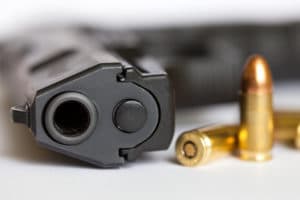Pennsylvania Residents Accused of Possessing Cache of Weapons near Holland Tunnel in New Jersey

According to Hudson County prosecutors, law enforcement seized one assault rifle, one shotgun, five handguns, 10 knives, and more than 12 high-capacity magazines. In addition, authorities reportedly seized prescription drugs, marijuana, and a pipe. As a result, the suspects were also charged with drug crimes.
Reportedly, the defendants’ truck was stopped by police due to a cracked windshield. However, the trio’s attorneys asserted that the defendants’ truck was stopped only because of pro-gun-rights stickers on the vehicle. Thus, the issue at hand is whether the police lawfully stopped the truck because if the search that yielded the weapons was flawed, then the seized evidence could be suppressed.
Holland Tunnel Gun Charges in Jersey City, New Jersey
New Jersey gun laws are strict and carry severe penalties, but the same search, seizure, and suppression of evidence laws that apply in all criminal cases also control weapons cases. That’s because New Jersey search and seizure laws based on the Fourth Amendment of the United States Constitution apply to evidence in all criminal situations, including firearms cases. The bottom line is that the police cannot simply stop and search a motor vehicle, willy-nilly. Rather, there must be probable cause for the police to stop a car or a reasonable suspicion that a law is being broken before the police can stop a motor vehicle. If, as alleged in this case, the police stop a car without probable cause and then locate illegal items or contraband in that automobile, the evidence may not be admissible in court against the defendants. However, it is ultimately up to a judge to determine whether evidence is found lawfully or unlawfully and whether evidence must be suppressed.
